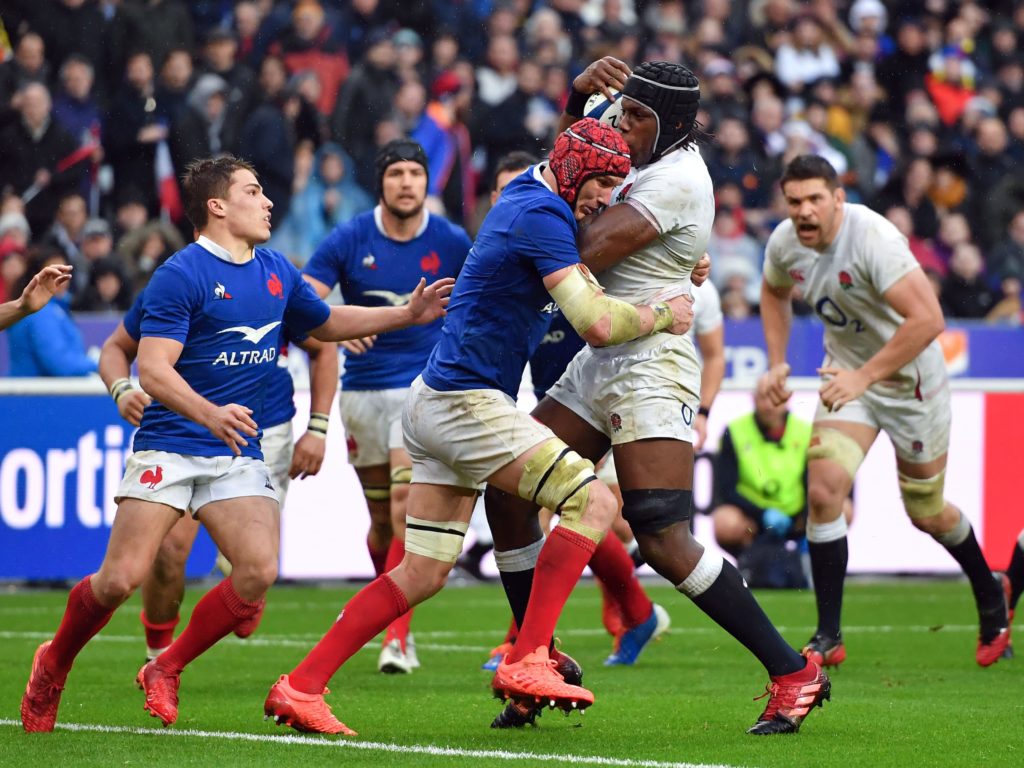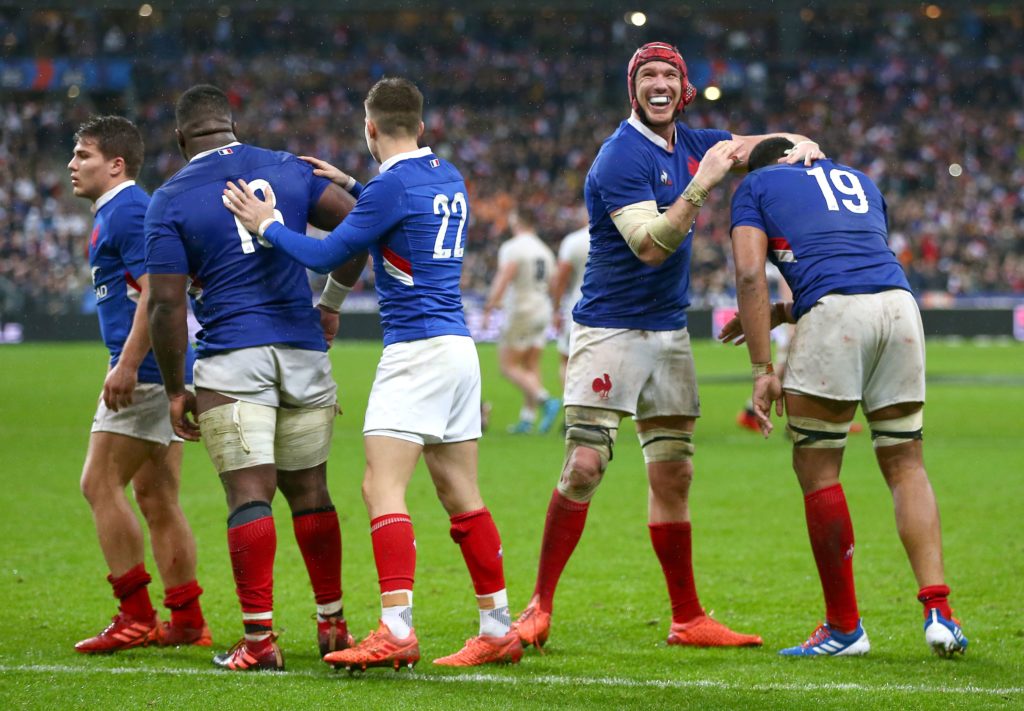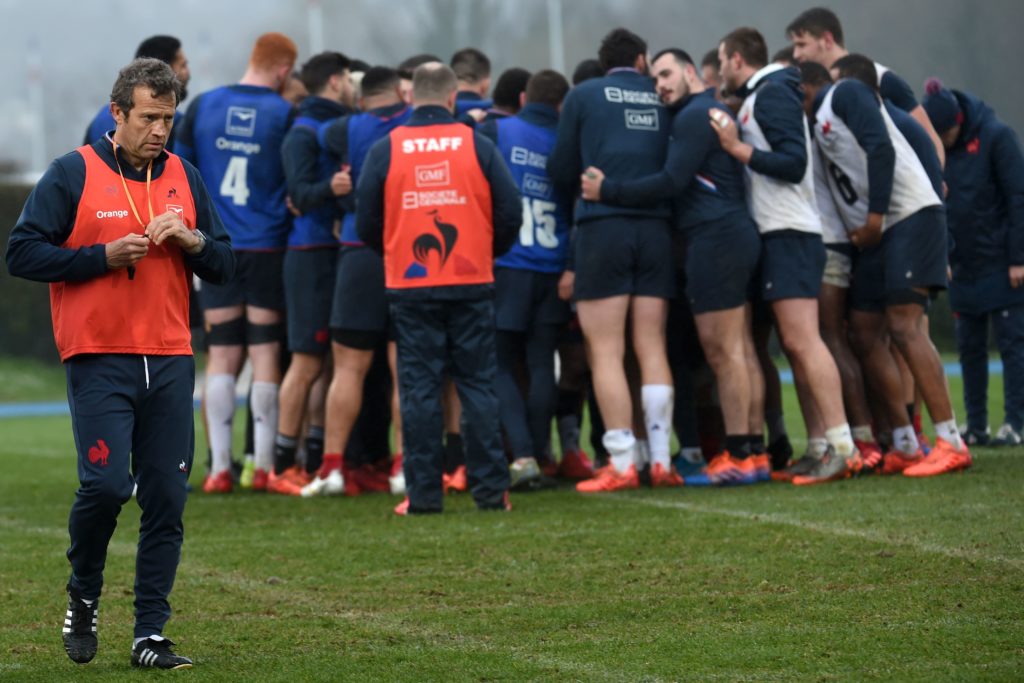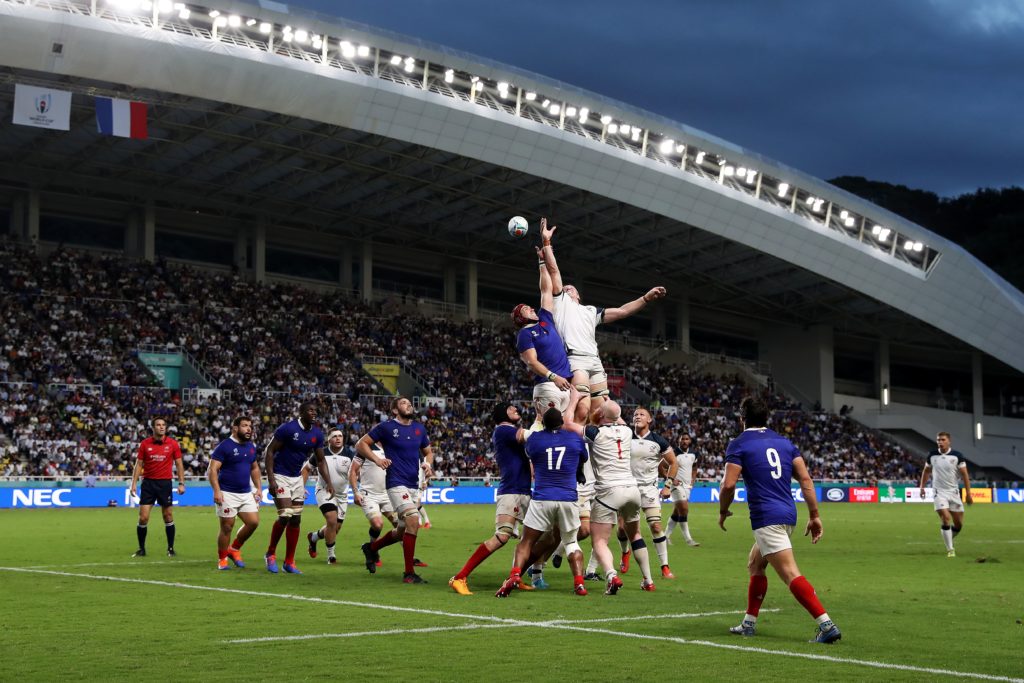The first time I interviewed Bernard Le Roux was in May, 2013. He had just been selected by Philippe Saint-André to tour New Zealand with the France squad. He was an engaging and articulate young man; he still is, albeit now an engaging and articulate 31-year-old. I won’t say ‘old man’ but the media made much of the fact he was the only thirtysomething selected in Fabien Galthié’s squad in the 2020 Six Nations.
It’s a testament to Le Roux’s strength of character that he remains such a positive soul, for he has experienced some of the lowest points in the history of Les Bleus. Let’s start with his debut, a 30-0 tonking by the All Blacks in Christchurch. It was a defeat that characterised the Saint-André era: sterile, soulless, supine. He wasn’t entirely to blame; Saint-André had inherited from Marc Lièvremont a generation of strong-willed but, some might say, spoilt players: talented but precious and selfish.
The generation Saint-André blooded were less gifted. Of their number, only Le Roux and Gaël Fickou remain. The rest have faded from international sight: Wesley Fofana, Sébastien Vahaamahina, Camille Lopez, Alexandre Flanquart, Eddy Ben Arous, Rabah Slimani, Loann Goujon.
Saint-Andre went after the debacle of the 2015 World Cup, replaced by Guy Noves, who was sacked after two chaotic seasons. Jacques Brunel stepped into the breach, he of the police inspector moustache, but who proved clueless in trying to prevent France’s seemingy terminal decline.

Eventually, FFR president Bernard Laporte took a gamble and appointed Galthié after the 2019 World Cup. The transformation has been astonishing. France are playing like, well, France again, with verve, ambition and pugnacity. Good coach as he is, Galthié has been lucky where Saint-André was unfortunate: the generation of players at his disposal have been lavished with talent: Dupont, Ntamack, Bamba, Ollivon, Cros, Vincent and Alldritt.
Le Roux started the first seven matches of Galthie’s reign. He would have played more had it not been for the rule agreed between the LNR and the FFR that limits players to three matches during the autumn window. Of those matches he won but one, to Scotland in March, a contrast to a run of seven games in 2017 and 2018 when he lost all but one. Times are a-changing, and Le Roux is moving with them.
They are a load of nice lads and everyone gets on really well. We go on the beers after the games and it’s fun being in this group.
Le Roux on the France squad
He’s playing the best rugby of his career, adding more bite in attack to his lethal defence (his highest tackle count in a Test is 33, five short of Thierry Dusautoir’s French record of 38, set in the 2007 World Cup quarter-final against New Zealand) and, if all goes well, next year he’ll win cap No50. Not bad for a lad from Moorreesburg who arrived in France as a 19-year-old with one bag and €100 spending money from his mum.
The key word when he talks about the transformation is “fun”. This is a French squad that feels good in its skin. “I’m really enjoying my rugby at the moment,” says Le Roux. “And off the field too. They are a load of nice lads and everyone gets on really well. We go on the beers after the games and it’s fun being in this group.”
As an outsider in terms of age, Le Roux finds the atmosphere within the squad stimulating and a challenge, one that has improved his own game. “This is a young team with heaps of talent coming through and I’m comfortable playing the role of the senior player,” he said. “I won’t say I’m heaps better than I was before, but I am definitely more comfortable on the field because I’m more experienced.”

Le Roux is an intelligent man. In his youth he harboured dreams of becoming a marine biologist, but although rugby scuppered that idea, he’s about to enrol in a university course to study business, with a view to going into real estate after his rugby retirement.
He brings thought and insight into why this French squad could be serious contenders for the 2023 World Cup. “People talk about French flair returning with this group but I think France is more structured than it has ever been, certainly since I’ve been there. Because of this structure, France are no longer playing on emotions,” he says.
“In previous years there was a mix of two different generations, players who were used to being coached in different ways. The group coming through now is from the same generation. They have been brought up doing things the same way. Add to that their talent – the back-to-back Under-20 World Cup titles – and there is a maturity and depth of talent throughout the squad.”
This maturity extends to the backroom staff. There have been endless histrionics over the years from French coaches – from Daniel Dubroca manhandling a referee during the 1991 World Cup to Lièvremont falling out with his players in the 2011 World Cup to Noves’ undignified departure. The set-up now is well structured and stable: Galthié is at the top, supported by a team who include William Servat, Shaun Edwards, Laurent Labit and Raphaël Ibañez. “We have quite a big staff but everybody is playing their role in the coaching and Fabien is running it all very well,” says Le Roux.
He’s a phenomenal coach but he has also got vision; he’s great at analysing games.
Le Roux on France coach Fabien Galthié
“We have changed cultures a lot, by which I mean for the first time in years we’re not chasing the southern-hemisphere sides or England or Wales. We’re not trying to catch up to those teams and copy what they’re doing. For the first time since I’ve been involved we’re actually trying to be in front of them and that makes a big difference. The whole approach is different..”
In recent weeks, I’ve interviewed Fickou and Demba Bamba and both spoke highly of Galthié as a man-manager. He’s tough, uncompromising, but he’s pushing the players to leave their comfort zones. Le Roux agrees. “Yes, he sets high standards and challenges players to better themselves,” he says. “He’s such a specialist in what he does, he plays that role well. He’s a phenomenal coach but he has also got vision; he’s great at analysing games.”

Le Roux, 6ft 4in and 17st 8lb, started his Test career on the flank but since 2018 he has won all his caps in the second row and, since Galthié took over, he has started every match.
It’s remarkable to think that some of Le Roux’s current team-mates, like Arthur Vincent and Louis Carbonel, were still at junior school when he arrived at Racing 92 in 2009. They were known as Racing Metro back then, and their home was at Colombes in the north of Paris, surely one of the most dilapidated stadiums then in existence in the professional game.
“I remember pitching up to Racing and it was pretty old, the clubhouse, the stadium,” says Le Roux. “Jacky Lorenzetti [the Racing owner] had this vision of having a stadium and having the best facilities in Europe and he has built towards that. He has not just bought players but he has developed them through the academy. We have a great indoor stadium, the Paris La Défense Arena and a great academy – I think we have the most academy players in a professional squad in the Top 14 – and so we have a base that means Racing will be successful years after Jacky is no longer involved.”
You have to invest in their culture, to make time to understand it and do things the French way instead of thinking of how they do things back home.
Of all the overseas players who have come to France, South Africans seem to make the best fist of it; few cut short their time and return to their comfort zone back home, as a fair number of British and Irish players have done in recent years. Perhaps they’re tougher mentally, or perhaps it’s the geographical gulf, which means they can’t pop home for a weekend to remind themselves of what they’re missing.
Adapting to French culture is tough, admits Le Roux: “It wasn’t easy for me the first year in France. I remember wanting to go home. I had a holiday in South Africa, came back to France and I wanted to return. I called my agent and said, ‘I don’t think I’m going to last’.” What changed was Le Roux embraced the culture and started to learn the language and, most importantly, accepted the differences between home and here.
“You have to invest in their culture, to make time to understand it and do things the French way instead of thinking of how they do things back home,” he says. “But it is tough. I haven’t seen a player who didn’t arrive from abroad and struggle in the first year. But if you stick in there, it’s worth it.”

Le Roux has no inclination to leave France or Racing. He’s a contented man, with a young family, and six caps shy of the half-century. All that’s missing is a few more medals in the display case. He played in the Top 14 final triumph against Toulon in 2016 but has three runners-up medals in the Champions Cup. That hurts. There’s also the matter of the 2023 World Cup in France.
“I think I have three years left in me, ideally up to the World Cup,” he says. “That’s my goal and I’d call it a day the season after. Who knows, but I’d love to make it to the World Cup because it would fun and want to win it.
“Fun”. That word again. Le Roux and France are on the up.
More France stories
If you’ve enjoyed this article, please share it with friends or on social media. We rely solely on new subscribers to fund high-quality journalism and appreciate you sharing this so we can continue to grow, produce more quality content and support our writers.


Comments
Join free and tell us what you really think!
Sign up for free